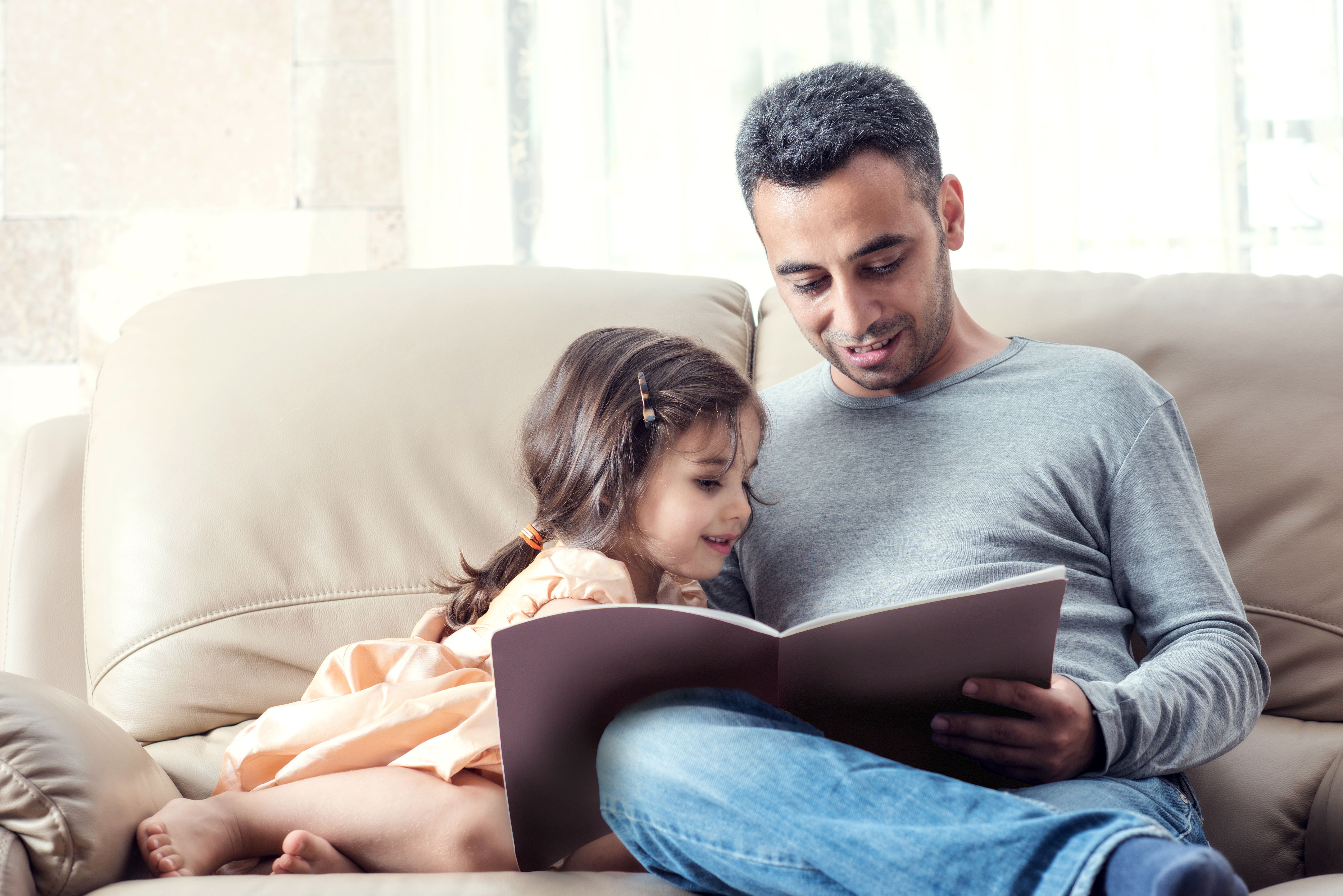
The importance of talking to kids about books
Help open a window to a child’s inner world and develop young brains
As the world marks International Literacy Day today, September 8, and the coronavirus continues to cast a shadow over our lives, it is worth considering how reading with children can help develop their – and our – emotional resistance in these troubled times.
Developing literacy in children is not just about reading, it is also about talking. There is rising evidence that quality conversations over books, particularly between very young children and the significant adults in their lives, have a lasting positive effect on brain development. Such conversations stimulate reading comprehension and help develop emotional intelligence and creativity.
hared reading is both diverting and anchoring. It entertains and also triggers important conversations we want to have with our children, or ones they want to have with us. It is hard to imagine a more important time than now to have such talks.
It is sometimes difficult to get a child to express fears and anxieties directly, or to express your own anxieties, without upsetting your child. Reading together about characters who are squabbling with siblings; missing grandparents; coping with boredom, loss or fear; or expressing gratitude present opportunities for parents to gently check in with a child. Who knows what you will discover when you ask a child questions such as, “What do you think the character is feeling?” “Have you ever felt that way?” “Do you think the character did the right thing?” or “What else could the character have done?”
Discussing a book with a child is a window into a child’s world, her perceptions, his fears, their hopes. It is also an opportunity to share some of your own feelings.
Until recently, we were told that the more words a child heard by age six – especially through reading – the greater the child’s comprehension skills and chances for academic success would be. Books were considered a particularly suitable vehicle for exposing children to a wide variety of words on a wide variety of subjects.
MORE RECENTLY, however, researchers have refined their thinking on this issue: Just reading a book to a child or talking at a child is not nearly as effective as talking with a child and discussing a book at hand. A recent MIT study that captured headlines found that the amount of “conversation turns,” i.e. exchanges in a conversation between parents and children ages four to six, correlated strongly with the children’s scores on standardized tests in language skills, including vocabulary, grammar and verbal reasoning. The number of conversation turns also correlated with more activity in Broca’s area, a part of the brain involved in speech production and language processing, compared to activity from solely listening to stories.
It makes sense. Practice makes perfect when it comes to exploring ideas and reasoning. So too does the notion that children are more likely to want to read if they have a positive memory, conscious or not, of having snuggled up with a parent and talked about books when young.
We are willing to do so much for our children because it is good for them. When we cuddle with our little ones, capturing a whiff of their freshly shampooed hair, when we loosen up and growl like the bear on one page and squeak like the mouse on the next, it’s not just kids who are having the time of their lives. Adults also deserve the fun and pleasure of reading to children.
Especially in this stressful time, reading with children allows us some respite from Zoom meetings, financial stress and household chores. The years that children enjoy being read to are fleeting, gone if we don’t enjoy them when we can. And unlike chocolate cake, reading with children is both scrumptious and good for us. So if there are young ones in your lives, even medium-aged ones, don’t deprive yourself or them of the pleasure of reading books and talking about them!
The writer is the director of Grinspoon Israel Foundation, which operates book-gifting programs for more than 500,000 children in Hebrew (http://eng.pjisrael.org/) and Arabic (http://eng-al-fanoos.org/) in Israel in cooperation with the Education Ministry. The foundation operates under the auspices of the US-based Harold Grinspoon Foundation (www.hgf.org), creator of the PJ Library book-gifting program.
תגיות: גלינה פרומן | קוראים בבית | איתכם בימי הקורונה




